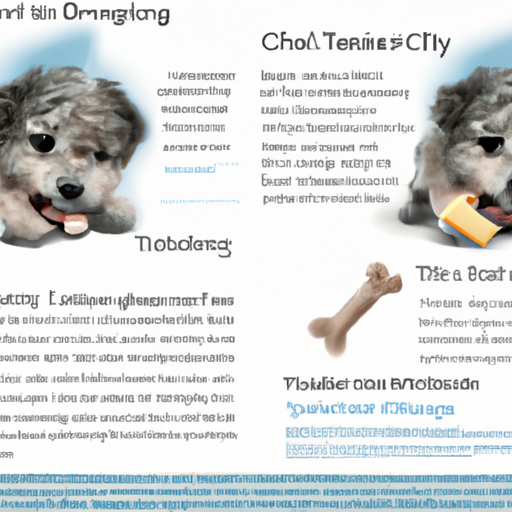As a caregiver to a new puppy, you might be wondering when your precious little pup will stop teething. Teething can be a challenging time, both for pups and their human companions. Puppies may become more destructive and may cause a lot of discomfort. This guide will help you understand the different stages of puppy teething and how you can ease your pup through this crucial growth stage.
Understanding Puppy Teething
Puppy teething is the process by which your new fur baby develops and grows their teeth. It’s just like baby teething in humans. However, it can be a more intense process for puppies, which leads to their notorious biting and chewing behavior.
Puppies are born without any teeth. By the time they are two to four weeks old, their baby teeth, also known as milk teeth or deciduous teeth, start to emerge. The process continues until they have all 28 of their baby teeth.
When Does Puppy Teething Start?
Puppy teething generally begins around three weeks of age, and by eight weeks, most puppies have a full set of baby teeth. It’s important to remember that each puppy is unique and the exact timing can vary.
| Age | Teeth Development |
|---|---|
| Birth to 2 weeks | Puppies are born toothless |
| 2 to 4 weeks | Deciduous teeth begin to emerge |
| 5 to 8 weeks | All 28 baby teeth have emerged |
The Process of Losing Baby Teeth
Just like human children, puppies also lose their baby teeth. Around the age of three to four months, puppies begin losing their baby teeth, which are replaced by permanent adult teeth. This process is often referred to as “cutting teeth”.
When Do Puppies Stop Teething?
Usually, by the time puppies are six to seven months old, they have all of their 42 adult teeth and the teething process is complete. However, some puppies may continue to chew and bite more than others even after all their adult teeth have come in.
How to Tell if a Puppy is Teething
Here are some signs that your puppy is teething:
- Excessive chewing
- Drooling
- Decreased eating
- Irritability
- Red, swollen and sensitive gums
How to Ease a Teething Puppy’s Discomfort
There are several ways you can help your puppy cope with the discomfort of teething:
- Offer chew toys: Chew toys can provide relief to sore gums.
- Use a cold chew: A cold chew, like a frozen carrot, can numb the gums and soothe discomfort.
- Consider over-the-counter remedies: Ask your vet about safe over-the-counter remedies to ease teething pain.
What Not to Do When Your Puppy is Teething
Here are some things to avoid when your puppy is teething:
- Do not use your hands as chew toys: This could lead to your puppy thinking it’s okay to bite.
- Do not scold or punish your puppy for chewing: It’s a natural part of their development.
- Do not ignore the signs of teething: If your puppy is showing signs of distress, consult your vet.
FAQ
When do puppies start teething?
Puppies usually start teething around three weeks of age. By eight weeks, most puppies have a full set of baby teeth.
When do puppies stop teething?
Typically, puppies stop teething by the time they are six to seven months old.
How can I tell if my puppy is teething?
Signs that your puppy is teething include excessive chewing, drooling, decreased eating, irritability, and red, swollen gums.
How can I ease my puppy’s teething discomfort?
You can ease your puppy’s teething discomfort by offering chew toys, using a cold chew, or asking your vet about safe over-the-counter remedies.
What should I avoid when my puppy is teething?
Do not use your hands as chew toys, scold or punish your puppy for chewing, or ignore the signs of teething. Always consult your vet if your puppy seems distressed.



